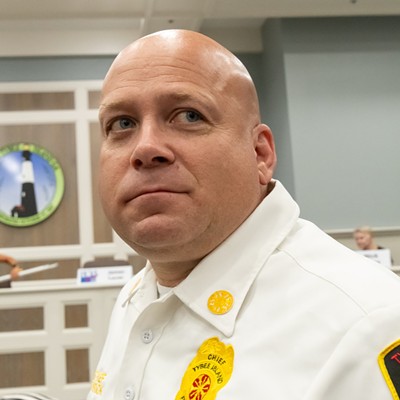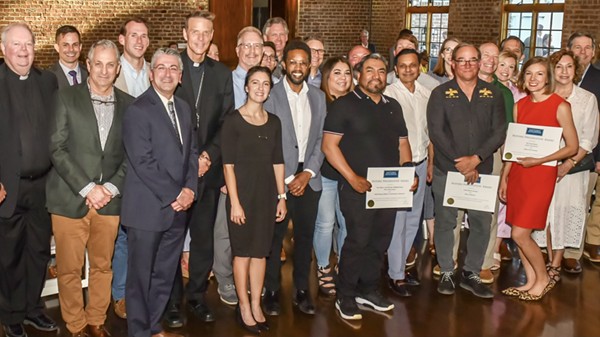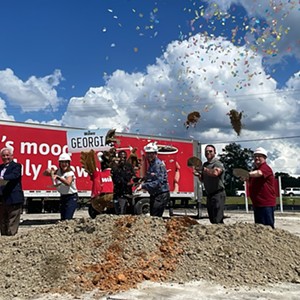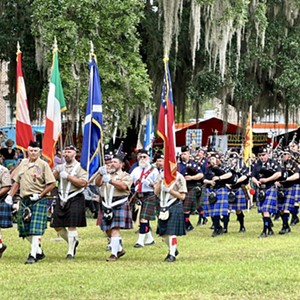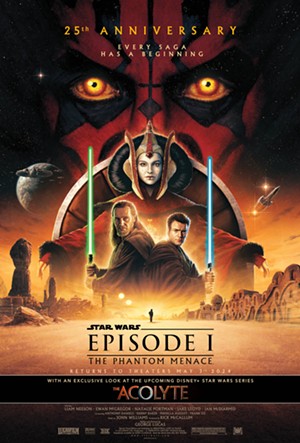A peace of their minds
[
{
"name": "Air - MedRect Combo - Inline Content 1",
"component": "14680855",
"insertPoint": "7",
"requiredCountToDisplay": "5",
"parentWrapperClass": "fdn-ads-inline-content-block"
},{
"name": "Air - MedRect Combo - Inline Content 2",
"component": "14680856",
"insertPoint": "15",
"requiredCountToDisplay": "9",
"parentWrapperClass": "fdn-ads-inline-content-block"
},{
"name": "Air - SVP - Leaderboard - Inline Content - 2",
"component": "16852291",
"insertPoint": "10",
"requiredCountToDisplay": "10",
"parentWrapperClass": "fdn-ads-inline-content-block"
},{
"name": "Air - SVP - Leaderboard - Inline Content - 3",
"component": "16852292",
"insertPoint": "20",
"requiredCountToDisplay": "18",
"parentWrapperClass": "fdn-ads-inline-content-block"
},{
"name": "Air - SVP - Leaderboard - Inline Content - 1",
"component": "16852290",
"insertPoint": "25",
"requiredCountToDisplay": "22",
"parentWrapperClass": "fdn-ads-inline-content-block"
}
]
Wheres a policeman when you really need one? laughed Robert Ludgate, one of a dozen volunteer peacekeepers tasked with conflict resolution at last Tuesdays march against the G8 in Forsyth Park.
Ludgates rhetorical question came shortly before the march was to begin, when he spotted a crowd of young, self-styled anarchists walking up Park Avenue with banners and drums.
But it was the black scarves over their faces that worried Ludgate.
Its actually against the law to use face coverings in public gatherings, Ludgate said. Im going to go tell them they might be causing themselves and us a lot of trouble if they dont take them off.
Ludgate never did need that cop. The anarchists marched in noisy but ordered fashion towards the park, outnumbered by the media swarming around them. A horse-mounted SPD patrol kept its distance on the other side of the sidewalk.
The crowd made its way to the main lawn area of the park, morphing into a free-form ad hoc press conference. Journalists from all over the world -- sweating in the humidity, Summit credentials dangling around their necks -- peppered them with questions about what they hoped to accomplish.
One of the marchers was Piccolo, a longtime fixture of the Savannah scene who marched with Martin Luther King Jr. back in the day.
They killed Dr. King, but they couldnt kill the age, said Piccolo. Weve got to march to save our jobs.
Piccolo did grant that todays activism is a far cry from when he was coming up.
Its a whole lot different, its a whole different line now, he said. Back then you couldnt get a hot meal. You couldnt stay in a decent hotel.
Another local fixture, Pro-Life Anderson, said he didnt have a beef against the G8 but was praying that the leaders make wise decisions. Im against injustice in any form.
The tireless anti-abortion activist -- whose legal first name is actually Pro-Life -- was certainly out of place at the gathering, but made his case by saying, If the G8 is killing off all their future customers, there wont be any more money for them to make.
A younger activist, teenaged Morgan Lockamy, was also devoted to peaceful change. The G8 is against everything I stand for, she said bravely, though admitting that she was worried about the police going crazy.
A young Russian activist, Vladimir Tchouprov, was handing out leaflets about nuclear waste. Tchouprov is associated with the Greenpeace-sponsored photo exhibit at the Sentient Bean.
We oppose the Summits efforts to solve the proliferation problem, said Tchouprov. They want to create new processing facilities, produce more plutonium and produce more waste. This will produce even more social and environmental impact in Russia.
Tchouprov allowed that the G8s tendency to move slowly could work to his liking.
Honestly, we dont know what they will discuss here, he said. If we dont hear anything come out of this about the mixed oxide plutonium program, then that could be good news for us.
Green Party activist Mitchell Cohen came down from New York to be a speaker at the three-day Free Speech Festival in the Park.
Were basically working towards three things, he explained. Immediate withdrawal from Iraq; an end to global environmental destruction, especially with regards to genetic engineering of food; and restoring the Bill of Rights.
Soon the march was off, with a rousing address from William Pleasant, one of the event organizers.
Setting a blistering pace for such a hot day, the march went down Gwinnett Street west of the Park, turned north on MLK Jr. Blvd., and circled back east on Gwinnett, returning to the Park.
It was over in half an hour.
Subsequent events at the Park festival had negligible attendance, mirroring a similarly low turnout in Brunswick, closer to Sea Island.
Indeed, volunteer peacekeepers had so few conflicts to resolve that many went home early that first day.
Still, Pleasant and other activists, like Kellie Gasink and local attorney Joyce Griggs, set a defiant tone from the stage after the march was over.
The city didnt want this to happen, insisted Pleasant.
Griggs compared the scene to martial law, asking the crowd to look around them at the heavy police presence.
One police representative rolled his eyes at their theatrics.
The city gave them everything they asked for, he said. We gave them everything.
In addition to granting protestors a permit for the march and the three-day festival in the park, the City of Savannah also paid for the training of the peacemakers.
Marty Kaufman, one of the peacemakers, explained that her group took 20 hours of intensive conflict resolution training, provided by the Fellowship of Reconciliation, one of the nations oldest social justice groups.
Were not on anyones side, Kaufman explained. Were not on the side of the protestors or of the police.
Peacekeepers training emphasized explaining to police and to protestors their common similarities, rather than their differences -- for example, both sides believing in the freedom to peacefully exchange views without fear of physical violence, and for protestors to respect private property even as property owners must respect the protestors right to peaceably assemble.
After the Summit, both sides declared victory.
Protest organizer Kellie Gasink thanked supporters in an e-mail entitled Victory in Savannah.
George Bush thought that he could come to Coastal Georgia for his G-8 tea party and escape the rebuke of the people, Gasink wrote in the flowery prose that has become her trademark. Three hundred demonstrators stared down 20,000 troops and police and captured the hearts of the world.
Police circulated a post-Summit e-mail entitled A Coastal Empire Triumph. In the e-mail, Savannah Police spokesman Bucky Burnsed wrote:
Savannah/Chatham Metro Police Department would like to thank all the citizens of the Coastal Empire for their patience and full support throughout the past 10 months and especially during the events of the last week, Burnsed said.
And finally to the members of the activist community, law enforcement acknowledges the peaceful execution of your constitutional rights to which we are all fully committed.
A statement by Savannah/Chatham Police Chief Dan Flynn the day after the Summit was over contained an almost palpable sense of relief:
Georgia's peaceful G-8 is the direct result of the effort put forth by all of the parties involved; from the electorate, to the judiciary, from civil servants to volunteers, from the state militia to the total citizenry, Flynn said.
Our entire community has just reason to be proud."
Ludgates rhetorical question came shortly before the march was to begin, when he spotted a crowd of young, self-styled anarchists walking up Park Avenue with banners and drums.
But it was the black scarves over their faces that worried Ludgate.
Its actually against the law to use face coverings in public gatherings, Ludgate said. Im going to go tell them they might be causing themselves and us a lot of trouble if they dont take them off.
Ludgate never did need that cop. The anarchists marched in noisy but ordered fashion towards the park, outnumbered by the media swarming around them. A horse-mounted SPD patrol kept its distance on the other side of the sidewalk.
The crowd made its way to the main lawn area of the park, morphing into a free-form ad hoc press conference. Journalists from all over the world -- sweating in the humidity, Summit credentials dangling around their necks -- peppered them with questions about what they hoped to accomplish.
One of the marchers was Piccolo, a longtime fixture of the Savannah scene who marched with Martin Luther King Jr. back in the day.
They killed Dr. King, but they couldnt kill the age, said Piccolo. Weve got to march to save our jobs.
Piccolo did grant that todays activism is a far cry from when he was coming up.
Its a whole lot different, its a whole different line now, he said. Back then you couldnt get a hot meal. You couldnt stay in a decent hotel.
Another local fixture, Pro-Life Anderson, said he didnt have a beef against the G8 but was praying that the leaders make wise decisions. Im against injustice in any form.
The tireless anti-abortion activist -- whose legal first name is actually Pro-Life -- was certainly out of place at the gathering, but made his case by saying, If the G8 is killing off all their future customers, there wont be any more money for them to make.
A younger activist, teenaged Morgan Lockamy, was also devoted to peaceful change. The G8 is against everything I stand for, she said bravely, though admitting that she was worried about the police going crazy.
A young Russian activist, Vladimir Tchouprov, was handing out leaflets about nuclear waste. Tchouprov is associated with the Greenpeace-sponsored photo exhibit at the Sentient Bean.
We oppose the Summits efforts to solve the proliferation problem, said Tchouprov. They want to create new processing facilities, produce more plutonium and produce more waste. This will produce even more social and environmental impact in Russia.
Tchouprov allowed that the G8s tendency to move slowly could work to his liking.
Honestly, we dont know what they will discuss here, he said. If we dont hear anything come out of this about the mixed oxide plutonium program, then that could be good news for us.
Green Party activist Mitchell Cohen came down from New York to be a speaker at the three-day Free Speech Festival in the Park.
Were basically working towards three things, he explained. Immediate withdrawal from Iraq; an end to global environmental destruction, especially with regards to genetic engineering of food; and restoring the Bill of Rights.
Soon the march was off, with a rousing address from William Pleasant, one of the event organizers.
Setting a blistering pace for such a hot day, the march went down Gwinnett Street west of the Park, turned north on MLK Jr. Blvd., and circled back east on Gwinnett, returning to the Park.
It was over in half an hour.
Subsequent events at the Park festival had negligible attendance, mirroring a similarly low turnout in Brunswick, closer to Sea Island.
Indeed, volunteer peacekeepers had so few conflicts to resolve that many went home early that first day.
Still, Pleasant and other activists, like Kellie Gasink and local attorney Joyce Griggs, set a defiant tone from the stage after the march was over.
The city didnt want this to happen, insisted Pleasant.
Griggs compared the scene to martial law, asking the crowd to look around them at the heavy police presence.
One police representative rolled his eyes at their theatrics.
The city gave them everything they asked for, he said. We gave them everything.
In addition to granting protestors a permit for the march and the three-day festival in the park, the City of Savannah also paid for the training of the peacemakers.
Marty Kaufman, one of the peacemakers, explained that her group took 20 hours of intensive conflict resolution training, provided by the Fellowship of Reconciliation, one of the nations oldest social justice groups.
Were not on anyones side, Kaufman explained. Were not on the side of the protestors or of the police.
Peacekeepers training emphasized explaining to police and to protestors their common similarities, rather than their differences -- for example, both sides believing in the freedom to peacefully exchange views without fear of physical violence, and for protestors to respect private property even as property owners must respect the protestors right to peaceably assemble.
After the Summit, both sides declared victory.
Protest organizer Kellie Gasink thanked supporters in an e-mail entitled Victory in Savannah.
George Bush thought that he could come to Coastal Georgia for his G-8 tea party and escape the rebuke of the people, Gasink wrote in the flowery prose that has become her trademark. Three hundred demonstrators stared down 20,000 troops and police and captured the hearts of the world.
Police circulated a post-Summit e-mail entitled A Coastal Empire Triumph. In the e-mail, Savannah Police spokesman Bucky Burnsed wrote:
Savannah/Chatham Metro Police Department would like to thank all the citizens of the Coastal Empire for their patience and full support throughout the past 10 months and especially during the events of the last week, Burnsed said.
And finally to the members of the activist community, law enforcement acknowledges the peaceful execution of your constitutional rights to which we are all fully committed.
A statement by Savannah/Chatham Police Chief Dan Flynn the day after the Summit was over contained an almost palpable sense of relief:
Georgia's peaceful G-8 is the direct result of the effort put forth by all of the parties involved; from the electorate, to the judiciary, from civil servants to volunteers, from the state militia to the total citizenry, Flynn said.
Our entire community has just reason to be proud."




